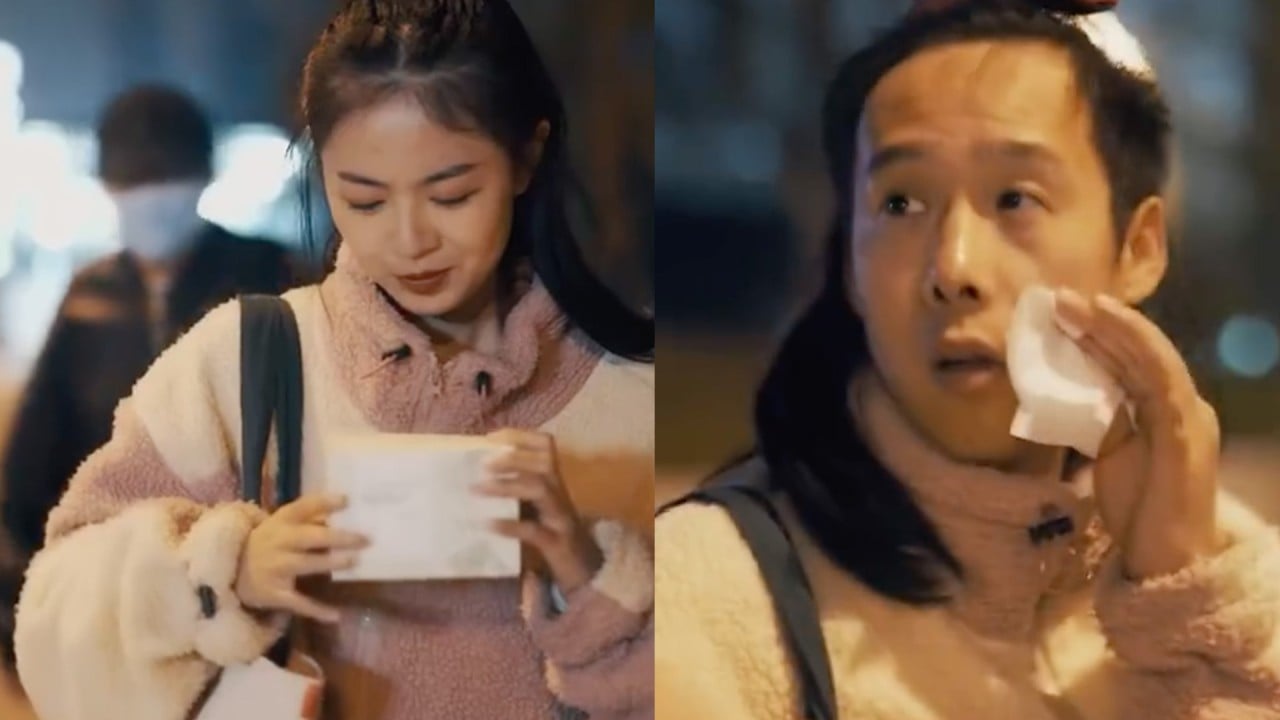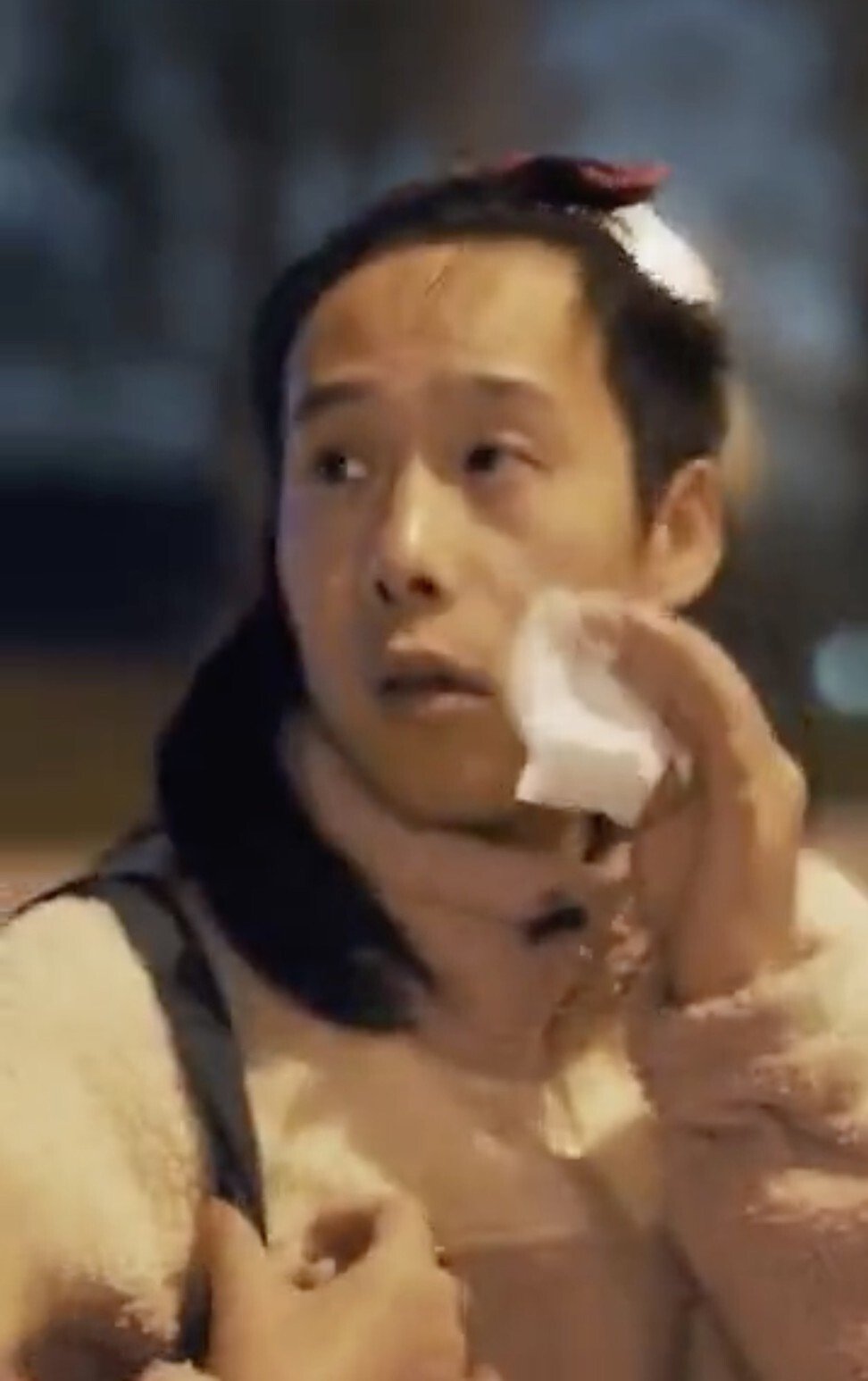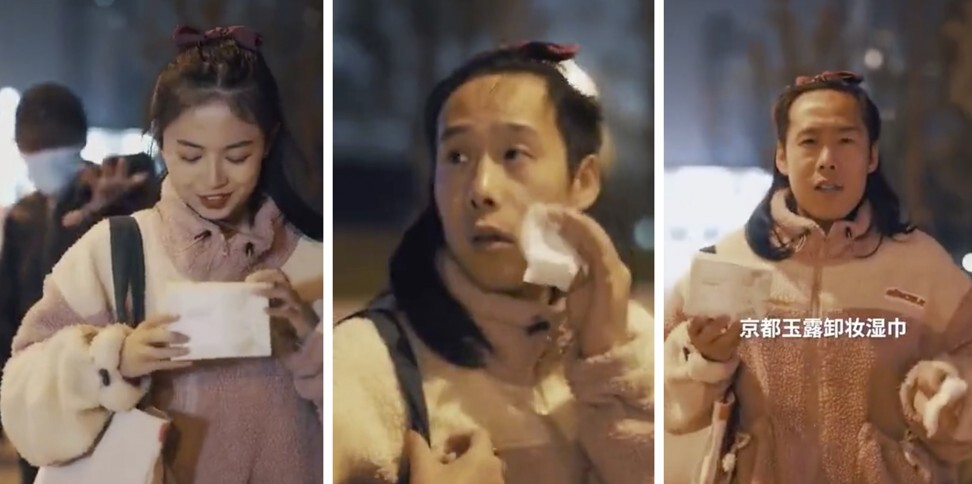
Ad showing woman avoid sexual assault by using make-up remover withdrawn after it causes outrage online
- Chinese company Purcotton’s ad showing a young woman wiping away her make-up to scare off a male pursuer was attacked for ‘demonising’ sexual assault victims
- Purcotton apologised and tried to defend the ad, before saying sorry again and pulling it. ‘How can you make fun of a woman being followed,’ a Weibo user wrote
A Chinese company’s video advertisement for women’s make-up remover wipes has been panned by online critics, leading the company to withdraw it and issue two apologies.
Purcotton, owned by Winner Medical Co. released the video last week on Douyin, the Chinese version of TikTok, showing a young woman scaring off a would-be attacker with her naked, make-up-free face after using the cleansing wipes.

01:55
Chinese ‘victim-shaming’ ad for make-up remover pulled
The 26-second ad was pulled after online users denounced it for “demonising” female sexual assault victims.
The offending ad showed a young woman walking down a street at night and being followed by a masked man. As the stalker gets closer, the woman pulls out a cleansing wipe to quickly remove her make-up and “scare off” the would-be assailant with her naked face.

As he grabs her from behind, she turns to show him her now make-up-free face, which causes the visibly disgusted attacker to flee.
Within a short time of it appearing on social media sites, the company was forced to pull the ad after a severe online whipping from outraged internet users. They condemned the ad for victim-shaming women by insinuating that they were to blame for attacks by beautifying themselves through using make-up.
‘I felt naked’: the ‘smart’ cushion that spies on office staff
Others described the ad as offensive because it suggested that without make-up, women were not attractive to men.
“How can you make fun of a woman being followed late at night?” wrote one user on Weibo, China’s Twitter.
“The woman is not at fault here, it’s the offender who wants to commit a crime,” another said.

Internet site China Girls’ Information, operated by the Chinese-government-affiliated All-China Girls’ Federation, told news website The Unfold Times the ad “demonised the sufferer”.
“[It’s] stuffed with prejudice, malice, and ignorance,” a spokesperson wrote on social media.
The video is no longer available on the company’s social media pages.
We have all had enough of victim blaming
The company apologised, and initially defended the ad in a post on Weibo, saying it took an artistic approach that attempted to show the wipes’ “cleansing ability”. Later, Purcotton pulled the ad and issued a second public apology.
“We have allowed a video that did not follow our values to go online. We let you down and hurt your feelings. We deeply regret this and sincerely say ‘We are sorry, we were wrong’,” the company wrote.
The company said it would suspend dealings with the ad’s producers, and launched an investigation to determine how the ad had been approved internally, to avoid further such incidents occurring.

The ferocious backlash against the video is emblematic of the extensive public protests recently in China against victim-blaming.
A feminist blogger who prefers to go by her pen name of Shaoxi believes the insulting ad was the result of a lack of female voices in key leadership roles in China.
Ramos says women who speak up about harassment are seen as troublemakers
“In the past, we saw a lot of news where women were the victims, such as #MeToo cases, with lots of comments shaming women. Many commentators didn’t even know the concept of ‘victim blaming’,” Shaoxi said.
Liu Jingyao, a Chinese student in Minnesota in the United States, learned how brutal online critics can be when she was victim-shamed countless times and accused of making false allegations after accusing Richard Liu Qiangdong, the founder of Chinese e-commerce giant JD.com, of rape in 2018.
Many people have rallied in support of the now 22-year-old student, including at a recent gathering in Minneapolis.
Shaoxi believes that more people are standing up for female victims.
“In the past, women weren’t accustomed to speaking up on public and social issues, and they don’t necessarily always have support,” she said. “Now with the feminist movement [in China] becoming stronger, more women are brave enough to speak up.”
“We have all had enough of victim blaming.”

.jpg?itok=H5_PTCSf&v=1700020945)